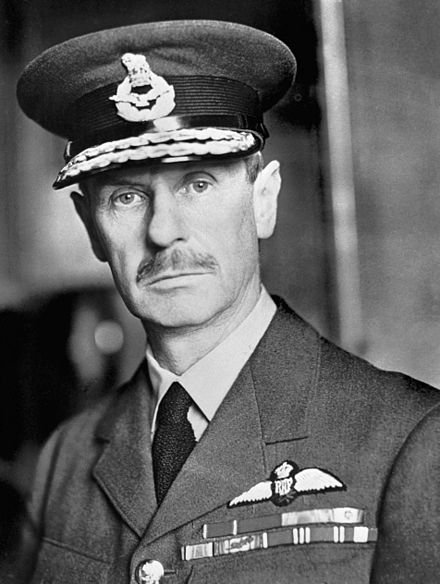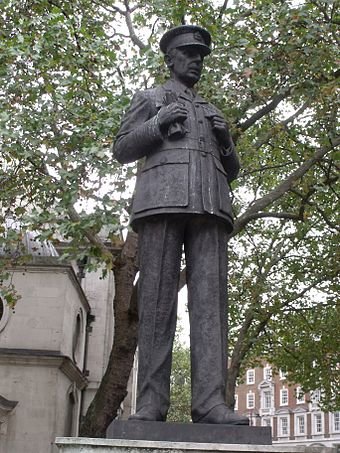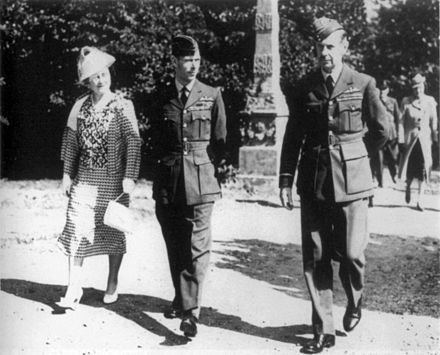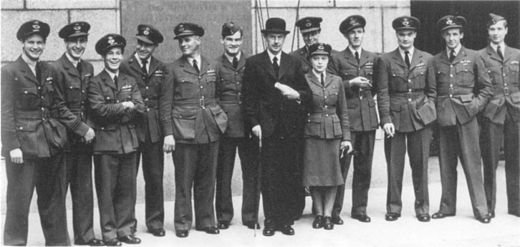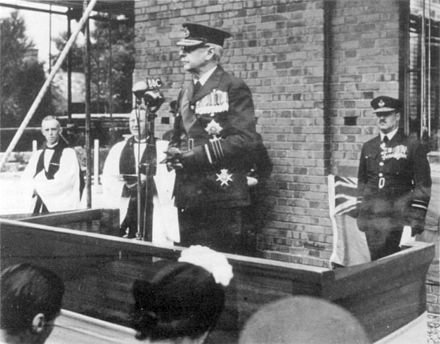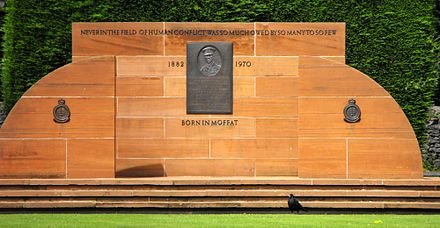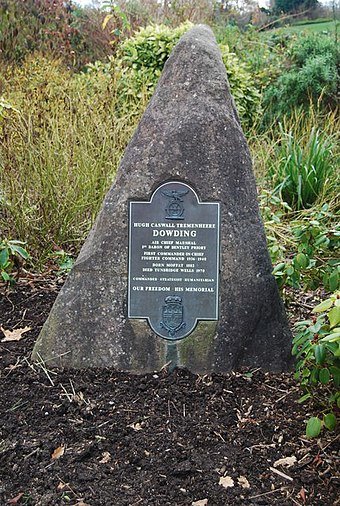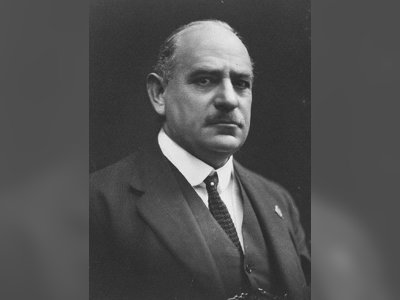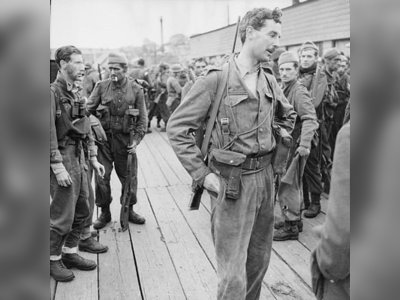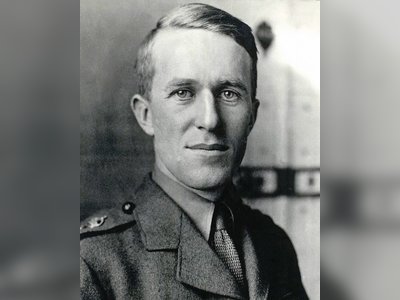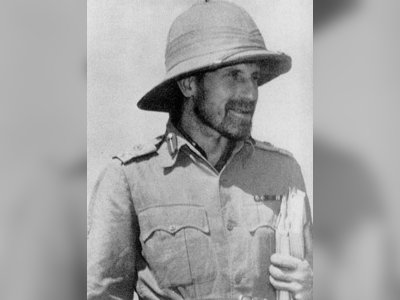British Heritage
Remember, Cherish, Learn.
beta
Hugh Dowding
Contribution of Air Chief Marshal Hugh Dowding to British Heritage.
Air Chief Marshal Hugh Dowding, 1st Baron Dowding, was a prominent figure in the Royal Air Force (RAF) during critical periods in British history. His legacy is deeply intertwined with Britain's defense and victory during the Battle of Britain in World War II. Born on 24 April 1882 in Moffat, Scotland, Dowding's military career began in the British Army during the early 1900s. However, his significant contributions to British Heritage came when he transitioned to the newly formed Royal Flying Corps (RFC) at the start of the First World War.
During World War I, Dowding proved himself as a capable and skilled pilot in the RFC. He commanded several squadrons and showed strong leadership abilities. His passion for aviation led him to obtain Aviator's Certificate no. 711, and he played a crucial role in the development of air defense strategies. Dowding's career progressed, and he eventually reached the rank of air marshal.
The inter-war years saw Dowding's rise through the ranks of the RAF. He became Air Officer Commanding Fighting Area and later joined the Air Council as Air Member for Supply and Research. In July 1936, Dowding was appointed as the commanding officer of the newly created RAF Fighter Command. It was during this time that he developed the "Dowding system," an integrated air defense network that utilized radar, human observers, raid plotting, and radio control of aircraft. This system provided Britain with a formidable defense against potential attackers.
The Battle of Britain, a critical period in World War II, marked Dowding's most significant contribution to British Heritage. As Air Officer Commanding RAF Fighter Command, he masterminded the defense of the United Kingdom against the relentless attacks of the Luftwaffe. Dowding's strategic management and his decision to maintain a fighter reserve proved instrumental in repelling the German forces during the air battle.
Despite his remarkable achievements during the Battle of Britain, Dowding faced challenges from proponents of the "Big Wing" tactic, who disagreed with his strategic approach. Additionally, criticism emerged over the inadequacies of RAF's nighttime defense during the Blitz. These factors led to Dowding's eventual replacement in November 1940, despite his wishes to continue serving.
In his retirement, Dowding turned to spiritualism and became actively involved in the Theosophical Society, embracing beliefs in reincarnation and the existence of fairies. His contributions to British Heritage extended beyond the military sphere, as he supported anti-vivisection efforts, advocated for humane animal treatment, and laid the foundation stone of the Chapel of St. George at RAF Biggin Hill.
Air Chief Marshal Hugh Dowding's legacy is etched in British history for his pivotal role in the Battle of Britain and the development of the "Dowding system." His visionary leadership and strategic foresight ensured the protection of the United Kingdom during a critical period in World War II. Despite facing challenges and controversy later in life, Dowding's contributions to British Heritage remain significant and are commemorated through various monuments and honors dedicated to his name. His dedication to his country and the welfare of others left a lasting impact on the RAF and the nation he served with distinction until his death on 15 February 1970.
Early Military Career and World War I
During World War I, Dowding proved himself as a capable and skilled pilot in the RFC. He commanded several squadrons and showed strong leadership abilities. His passion for aviation led him to obtain Aviator's Certificate no. 711, and he played a crucial role in the development of air defense strategies. Dowding's career progressed, and he eventually reached the rank of air marshal.
Inter-War Years and RAF Fighter Command
The inter-war years saw Dowding's rise through the ranks of the RAF. He became Air Officer Commanding Fighting Area and later joined the Air Council as Air Member for Supply and Research. In July 1936, Dowding was appointed as the commanding officer of the newly created RAF Fighter Command. It was during this time that he developed the "Dowding system," an integrated air defense network that utilized radar, human observers, raid plotting, and radio control of aircraft. This system provided Britain with a formidable defense against potential attackers.
The Battle of Britain and Dowding's Leadership
The Battle of Britain, a critical period in World War II, marked Dowding's most significant contribution to British Heritage. As Air Officer Commanding RAF Fighter Command, he masterminded the defense of the United Kingdom against the relentless attacks of the Luftwaffe. Dowding's strategic management and his decision to maintain a fighter reserve proved instrumental in repelling the German forces during the air battle.
Legacy and Downfall
Despite his remarkable achievements during the Battle of Britain, Dowding faced challenges from proponents of the "Big Wing" tactic, who disagreed with his strategic approach. Additionally, criticism emerged over the inadequacies of RAF's nighttime defense during the Blitz. These factors led to Dowding's eventual replacement in November 1940, despite his wishes to continue serving.
Later Life and Beliefs
In his retirement, Dowding turned to spiritualism and became actively involved in the Theosophical Society, embracing beliefs in reincarnation and the existence of fairies. His contributions to British Heritage extended beyond the military sphere, as he supported anti-vivisection efforts, advocated for humane animal treatment, and laid the foundation stone of the Chapel of St. George at RAF Biggin Hill.
Conclusion
Air Chief Marshal Hugh Dowding's legacy is etched in British history for his pivotal role in the Battle of Britain and the development of the "Dowding system." His visionary leadership and strategic foresight ensured the protection of the United Kingdom during a critical period in World War II. Despite facing challenges and controversy later in life, Dowding's contributions to British Heritage remain significant and are commemorated through various monuments and honors dedicated to his name. His dedication to his country and the welfare of others left a lasting impact on the RAF and the nation he served with distinction until his death on 15 February 1970.
- Hugh Dowdingen.wikipedia.org
